#Toni Cade Bambara
Text
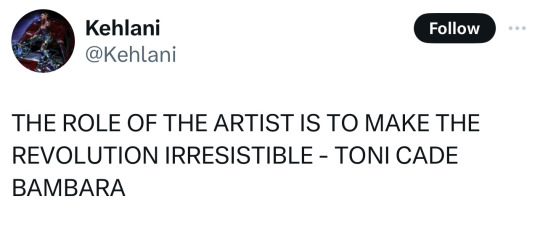


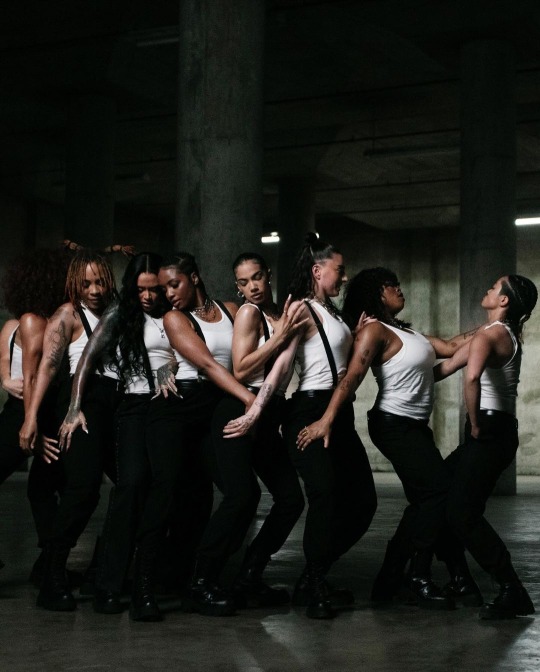
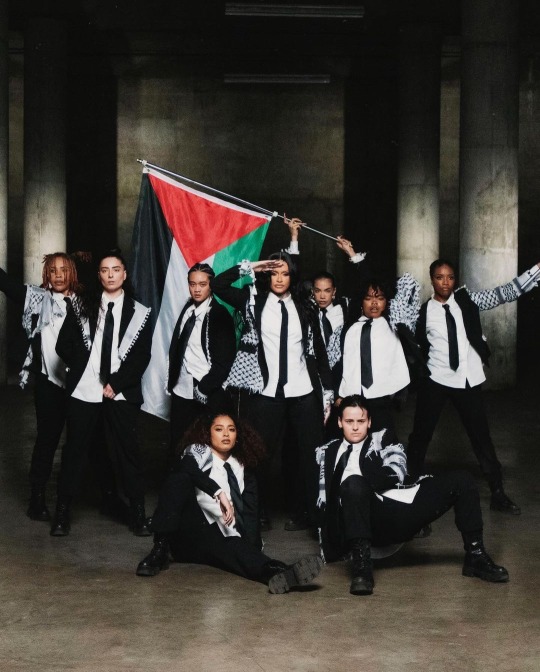
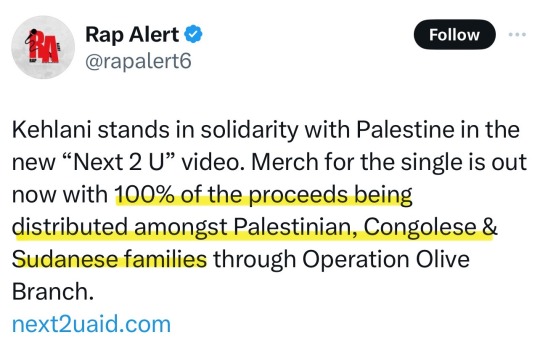
❤️🖤🤍💚 🇵🇸
489 notes
·
View notes
Text

Jim Alexander (photograph), SisterLove, Atlanta, GA, 1988 [Black Women Radicals. © Jim Alexander]
Louise Meriwether, Pinkie Gordon Lane, Johnnetta Cole, Paula Giddings, Pearl Cleage, Gwendolyn Brooks, Toni Cade Bambara, Sonia Sanchez, Nikki Giovanni, Mari Evans
#art#photography#poetry#louise meriwether#pinkie gordon lane#johnnetta cole#paula giddings#pearl cleage#gwendolyn brooks#toni cade bambara#sonia sanchez#nikki giovanni#mari evans#jim alexander#black women radicals#1980s
34 notes
·
View notes
Text

#books#education#black arts#black women#black writers#thebookmobile#nikki giovanni#gwendolyn brooks#toni cade bambara#toni morrison#audre lorde#sonia sanchez#ntozake shange#alice walker#neptune#neptunianmind#neptunian#books and reading#mercuryneptune#study
30 notes
·
View notes
Text
I do not think literature is the primary instrument for social transformation, but I do think it has its potency. So I work to tell the truth about people’s lives; I work to celebrate struggle, to applaud the tradition of struggle in our community… like the fact that the simple act of cornrowing one’s hair is radical in a society that defines beauty as blonde tresses blowing in the wind;
…
It would be dishonest, though, to end my comments there. First and foremost, I write for myself. Writing has been for a long time my major tool for self-instruction and self-development. I try to stay honest through pencil and paper. I run off at the mouth a lot. I’ve a penchant for flambyoant perforance. I exaggerate to the point of hysteria. I cannot always be trusted with my mouth open. But when I sit down with the notebooks, I am absolutely serious about what I see, sense, know. I write for the same reason I keep track of my dreams, for the same reason I meditate and practice being still— to stay in touch with me and not let too much slip by me. We’re about building a nation; the inner nation needs building, too.
…
I began writing in a serious way… when I got into teaching. It was a way to keep track of myself, to monitor myself. I’m a very seductive teacher, persuasive, infectious, overwhelming, irresistible. I worked hard in the classroom to teach students to critique me constantly, to protect themselves from my nonsense; but let’s face it, the teacher-student relationship we’ve been trained with is very colonial in nature. It’s fraught with dangers. The power given to teachers over students’ minds, students’ spirits, students’ development— my God! To rise above that, to insist of myself and of them that we refashion that relationship along progressive lines demanded a great deal of courage, imagination, energy, and will. Writing was a way to “hear” myself, check myself. Writing was/is an act of discovery.”
excerpts from Conversations with Toni Cade Bambara, TCB responds to the question, “What determines your responsibility to yourself and your audience?” posed in an interview by Claudia Tate, 1983
70 notes
·
View notes
Text
Poor people, people of color, Indigenous people, queer people, and women receive the least benefit from the nuclear complex and are most exposed to its harm: the most toxic nuclear technology sites are located on Indigenous land and in proximity to poor communities and communities of color; predominantly Black cities are established as nuclear bait to protect the white suburbs, with the result that by 1984, an estimated 88 percent of the African American population would have been wiped out in the first minutes of a full-scale atomic conflict; safety standards regulating exposure to radiation are established based on the male body when women exposed to the same sources are 37.5 percent more likely to develop cancer; homosexuals are purged from the government at twice the rate of communists as the security of the nuclear complex is perceived to be threatened by their vulnerability to blackmail. As the activist Jan in Toni Cade Bambara’s The Salt Eaters (1980) argues to a friend who semijokingly wants to keep the struggle focused on “good ole-fashioned” racism, “They’re connected. Whose community do you think they ship radioactive waste through, or dig up waste burial grounds near? Who do you think they hire for the dangerous dirty work at those plants? What parts of the world do they test-blast in? And all them illegal uranium mines dug up on Navajo turf—the crops dying, the sheep dying, the horses, water, cancer, Ruby, cancer. And the plant on the Harlem River.... Hell, it’s an emergency situation, has been for years. All those thrown-together plants they built in the forties and fifties are falling apart now. War is not the threat. It’s all the ‘peacetime’ construction that’s wiping us out.”
Jessica Hurley, Infrastructures of Apocalypse: American Literature and the Nuclear Complex (University of Minnesota Press, 2020), pp. 14–15.
78 notes
·
View notes
Text
The role of the artist is to make the revolution irresistible.
Toni Cade Bambara
10 notes
·
View notes
Text
“Are you sure, sweetheart, that you want to be well?… Just so’s you’re sure, sweetheart, and ready to be healed, cause wholeness is no trifling matter.”
— Toni Cade Bambara, The Salt Eaters
11 notes
·
View notes
Text

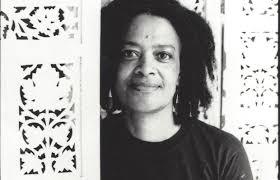
Toni Cade Bambara & June Jordan
Toni Cade Bambara and June Jordan were influential writers and activists who played significant roles in creating space for Black individuals within predominantly white spaces, much like Ms. Sharayna Christmas.
Toni Cade Bambara, best known for her novel "The Salt Eaters" and her short story collection "Gorilla, My Love," was deeply committed to representing the lives and experiences of Black people, particularly Black women, in her work. She often explored themes of race, gender, class, and identity, offering portrayals that challenged stereotypes and celebrated the diversity of Black experiences. Through her writing, Bambara gave space for Black voices in the literary world, asserting the importance of their stories. In her 1982 interview with Kay Bonetti, Toni Cade Bambara says that, "As a cultural worker who belongs to an oppressed people my job is to make revolution irresistible. One of the ways I attempt to do that is by celebrating those victories within the black community."
June Jordan, a prolific poet, essayist, and activist, was similarly dedicated to advocating for social justice and amplifying marginalized voices. Her poetry often addressed issues of racism, sexism, and oppression, while also celebrating the resilience and beauty of Black culture. Jordan was a powerful advocate for intersectionality, recognizing the interconnectedness of various forms of oppression and the importance of solidarity across different marginalized groups. Through her writing and activism, Jordan helped to create spaces where Black individuals could assert their identities and demand recognition and equality. During her career, June Jordan also taught at several colleges such as CUNY, Sarah Lawrence College, Yale University, SUNY Stony Brook, and University of California-Berkeley. Within her offered classes and student outreach, Jordan disrupted the status quo within these white institutions and swayed many student towards the path of activism.
Both Bambara and Jordan understood the importance of representation and self-expression in challenging systems of oppression and creating spaces where Black individuals could thrive. Through their literary contributions and their activism, they paved the way for future generations of Black writers, artists, and activists to assert their voices and claim their rightful place in predominantly white spaces.
6 notes
·
View notes
Text
“As a culture worker who belongs to an oppressed people, my job is to make revolution irresistible.”
- Toni Cade Bambara
5 notes
·
View notes
Text
“Keep the focus on the action not the institution; don’t confuse the vehicle with the objective; all cocoons are temporary and disappear.”
-- Toni Cade Bambara, from The Salt Eaters
15 notes
·
View notes
Text
CURRENTLY READING :
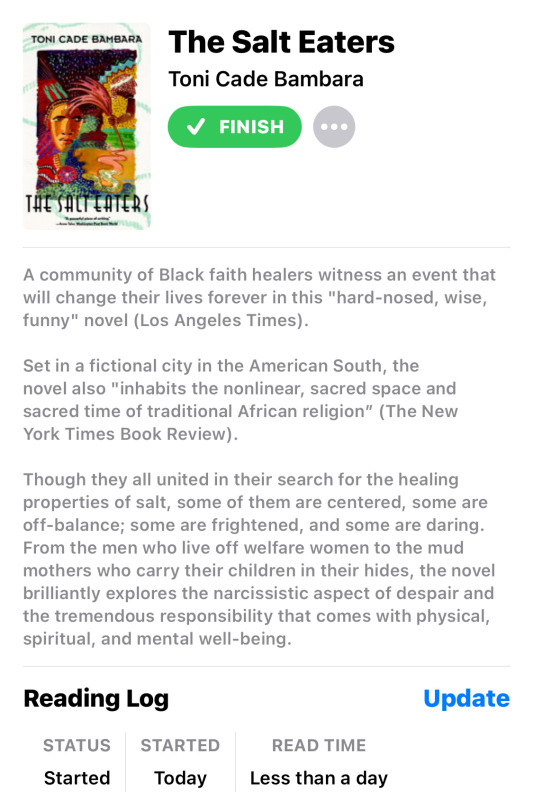
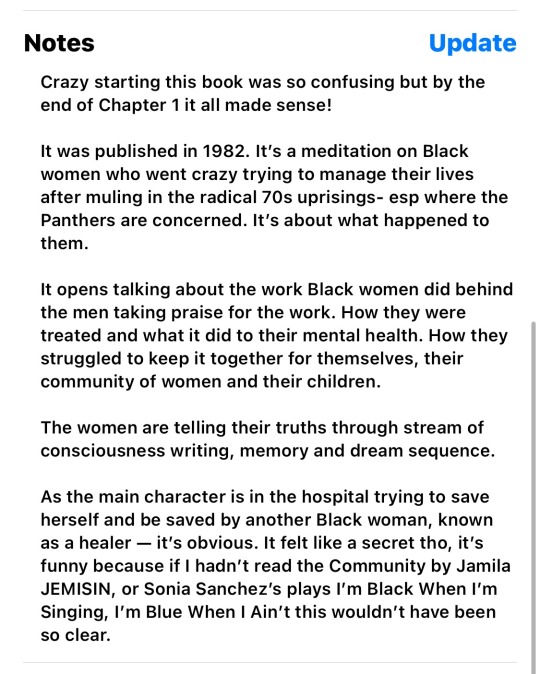
So it’s my day off and I’m chilling out as I usually do me and my baby laying in the bed my baby I mean Doggo and I’m just getting into the salt eaters. I’ve always wanted to really jump into Toni Cade Bambara’s work but I couldn’t find my footing. I realize now that it was because when I had attempted to read the book before it wasn’t making sense to me I went on Goodreads just to check out what some folks were saying about it and they agree that it was hard to navigate.
However, now I realize that I needed to read some other things to become more informed and those books lent clarity to this one. I wrote a couple notes in my favourite reading tracker app about what I was experiencing after I read chapter 1 and I actually wanna go back and start all over again because it was just so next level by the end of the time that I got to chapter 1 I was like holy shit. I might start all over. Anyway, just wanted to share.
#chantel’s reading diary#toni cade bambara#chantel’s reading notes#currently reading#goodreads#reading notes
3 notes
·
View notes
Quote
Outside in the yard that doubled as a parking lot and general hangout, the motorcycle club was gathering. Leather pants, jackets, silver studs spelling out names and threats, crushed hats or helmets, gloves, men straddling bikes or standing around profiling, the women seated waiting. Obie eyed the women sitting with their backs to the window, their asses splayed out on the black leather seats or leopard-skin seat covers, or held from spreading by thick denim or tight leather; their backs arched as they held on to fenders behind them; their backs bent as they leaned forward grabbing at the ape-hangers. Women. Women talking in bits and pieces, mostly waiting, mostly impatient waiting, waiting for the men to straddle the machines and turn on the power and take them somewhere.
from The Salt Eaters by Toni Cade Bambara
22 notes
·
View notes
Text
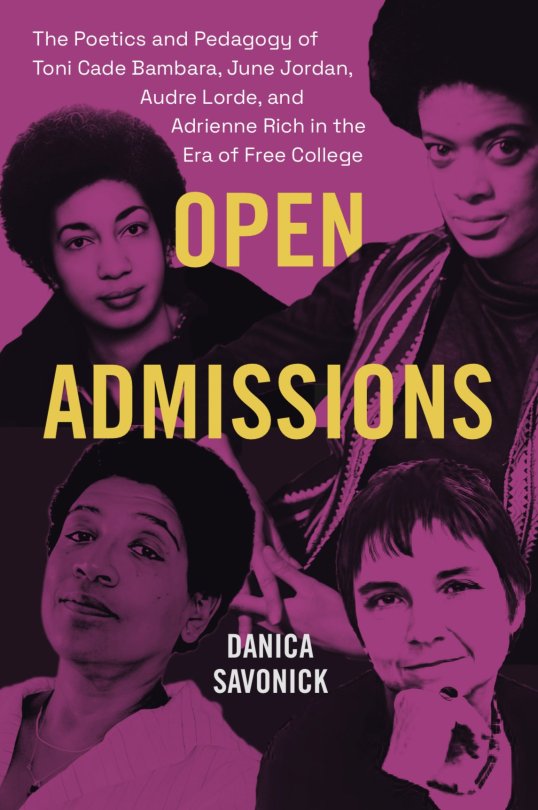
Danica Savonick, Open Admissions. The Poetics and Pedagogy of Toni Cade Bambara, June Jordan, Audre Lorde, and Adrienne Rich in the Era of Free College, Duke University Press, Durham, NC, 2024
#graphic design#pedagogy#education#poetry#school#book#cover#book cover#danica savonick#toni cade bambara#june jordan#audre lorde#adrienne rich#duke university press#2020s
21 notes
·
View notes
Text
I start with the recognition that we are at war, and that war is not simply a hot debate between the capitalist camp and the socialist camp over which economic/political/social arrangement will have hegemony in the world. It’s not just the battle over turf and who has the right to utilize resources for whomsoever’s benefit. The war is also being fought over the truth: what is the truth about human nature, about the human potential? My responsibility to myself, my neighbors, my family, and the human family is to try to tell the truth. That ain’t easy. There are so few truth-speaking traditions in this society in which the myth of “Western civilization” has claimed the allegiance of so many. We have rarely been encouraged and equipped to appreciate the fact that the truth works, that it releases the Spirit, and that it is a joyous thing.
Thabiti Lewis, Conversations with Toni Cade Bambara
2 notes
·
View notes
Text
"The role of the artist is to make the revolution irresistible" - Toni Cade Bambara
5 notes
·
View notes
Text
"What underlies my work as I read it—and I suspect it is what keeps my “children’s” stories from being insufferably coy, cute, and sentimental—are the basic givens from which I proceed. One, we are at war. Two, the natural response to oppression is resistance. Three, the natural response to stress and crisis is not breakdown and capitulation, but transformation and renewal."
-Toni Cade Bambara, "Moaning Pitched High Enough Sounds Like Laughing"
10 notes
·
View notes